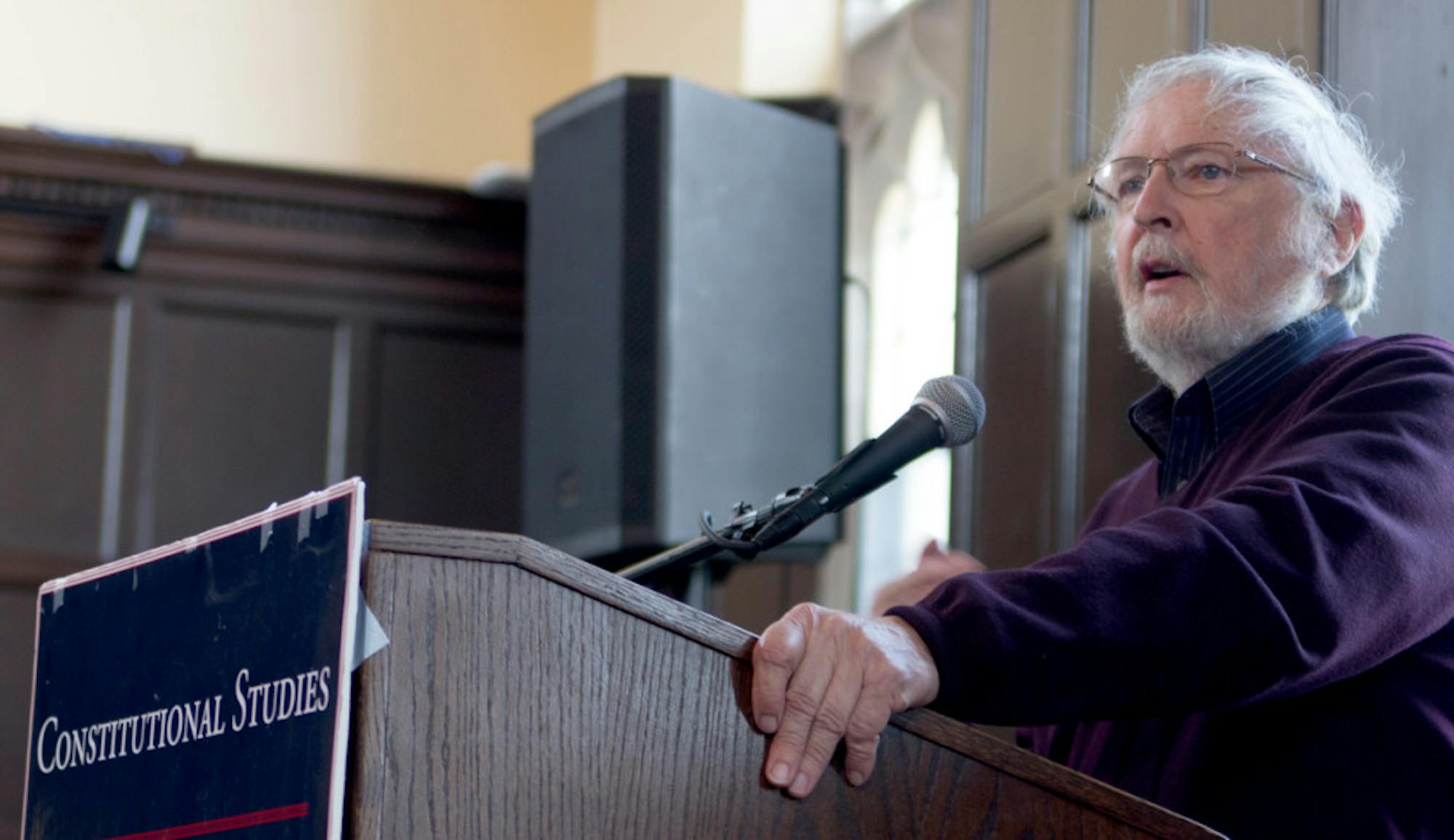
Speaking in the first installment of the Professors for Lunch talks sponsored by the Potenziani Minor in Constitutional Studies, Marsden described the development of American religious culture over the last several decades.
Beginning in the 1950s, there was a gradual movement away from mainstream American Protestantism, Marsden said.
“Religion was important in American culture, but until [the 1950s], the religion that was accepted was Protestantism,” he said. “So there was religion in the public life, but it also privileged one tradition at the expense of others.”
Further diminishing Protestantism’s role in mainstream culture, Marsden said, was the rise of the counter-culture movement in the 1960s.
“The counter-culture movement challenged the predominantly white Anglo-Saxon Protestant establishment,” he said. "Many of the mainstream Protestant denominations took that to heart, and there was a rapid moving away from any distinctly sectarian dimensions.”
During the 1970s, both the idea that religion was a private matter and the assumption that secularized values would replace traditional ones gained acceptance in mainstream culture, Marsden said.
In subsequent decades, Marsden said a growing religious right has proposed to reverse the absence of religion in public culture but has fallen short.
“Ultimately, the proposals tend to be simplistic ... and center around restoring Judeo-Christian consensus,” he said. “So, in effect, what the right is doing is proposing something like the golden former Protestant establishment.
“These sorts of proposals then lead to the standoffs of the culture wars. The secularists want privatization. ... From the right, there are more and more strident demands that society needs to go back to conservative Protestantism."
Marsden said no major religious group in America presents a compelling theory on religious pluralism, but tolerance of religious diversity nonetheless needs to be cultivated.
In proposing a solution to religious intolerance, Marsden cited Abraham Kuyper, a 19th-century Dutch statesmen, who proposed “to look to a tradition that makes religious pluralism into a principle ... the tradition which is today principled pluralism."
"He argued that healthy societies ought to cultivate religious difference,” he said.
The government, Marsden said, should recognize the rights of religious communities “to maintain their own institutions, associations of charitable works and schools free from ideologically-based regulation."
“If American life is healthier by honoring the diversity that we have ... there should be an equal honoring of religious diversity,” he said.
History professor Mark Noll said in response there were three factors in American society that prevented the implementation of a Kuyperian religious pluralism: electoral exclusion, educational exclusion and subverted subsidiarity — a move away from decentralization.
“America’s two-party political tradition ... makes it very difficult to produce the kind of pluralism that would diffuse the culture wars ... that we have experienced over the last 30 years,” Noll said.
He said public school education contributes to making religious pluralism untenable in American society.
“The American public school system has always been hegemonic, discriminatory, homogenizing," Noll said. "On the other side, it’s also the most celebrated icon of democracy, freedom and the American way."
Noll said subverted subsidiarity, the third factor barring the promotion of religious pluralism, stemmed from the success of the civil rights movements applied too extensively in addressing local issues.
“The civil rights movement became the unthinking modern paradigm and exemplar of all forms of public ethics," he said. "This is rhetoric out of control because it looks to the expansion of central government power as the remedy for local ills and disagreements."
Philosophy professor John O’Callaghan spoke last on the panel.
Although some scholars believe religious pluralism is a post-modern development, the pluralism that both Kuyper and Marsden advocate for is actually a “pre-modern” belief founded on Augustinian principles, O'Callaghan said.
“Augustine distinguishes two different senses of belief," he said. "There’s the belief that such and such is the case. We might call this belief in a fact. But the other belief that is arguably more important for Augustine is the sense in which we say ‘I believe you.' That’s believing a person. And, for Augustine, it is that sort of believing a person that makes believing a fact the starting point of understanding."
O’Callaghan said a Kuyperian religious pluralism, based on Augustine’s philosophical tenets, seeks to learn more from others based on the assumption that one does not know.
“That is the origin for Augustine," he said. "The thought that it is standing in relation to others who know what we do not know that we come to know and understand what we do not otherwise know and understand."













